#mental health awarness month
Explore tagged Tumblr posts
Photo

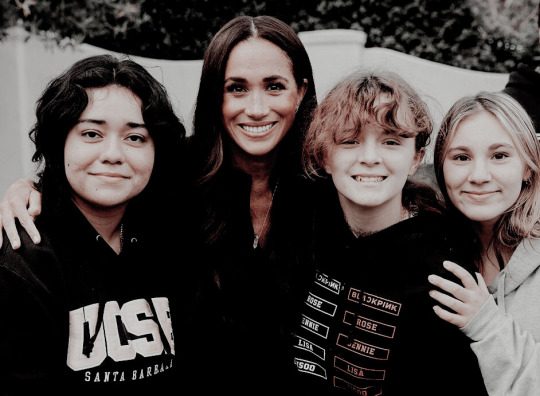
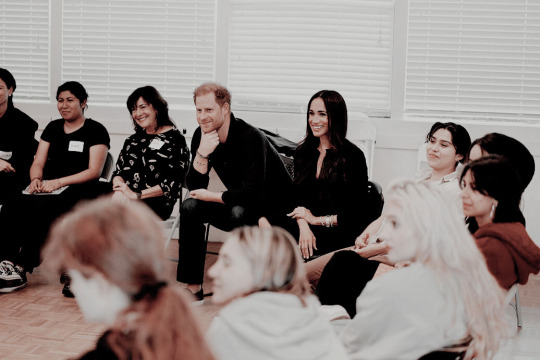
In recognition of Mental Health Awareness Month, Prince Harry and Meghan The Duke and Duchess of Sussex recently visited with a local youth group, AHA! Santa Barbra to learn firsthand about this generations experiences, with social media and societal pressures and how it affects their mental well being. The couple engaged with these amazing youth in candid conversation, working to find solutions together.
During this hour long session The Duke and Duchess of Sussex spoke with teens ages 14-18 about the opportunities social media can provide for connection and community, as well as the ways in which it also raises issues of insecurity, peer-pressure and potential for self-harm among other risks.
#the duke and duchess of sussex#meghan markle x prince harry#really adore these two precious human beings going out there and still supporting causes close to their hearts#mental health awarness month#mine; edits#the royal family
89 notes
·
View notes
Text
Today my therapist introduced me to a concept surrounding disability that she called "hLep".
[plain-text version of this post can be found under the cut]
Which is when you - in this case, you are a disabled person - ask someone for help ("I can't drink almond milk so can you get me some whole milk?", or "Please call Donna and ask her to pick up the car for me."), and they say yes, and then they do something that is not what you asked for but is what they think you should have asked for ("I know you said you wanted whole, but I got you skim milk because it's better for you!", "I didn't want to ruin Donna's day by asking her that, so I spent your money on an expensive towing service!") And then if you get annoyed at them for ignoring what you actually asked for - and often it has already happened repeatedly - they get angry because they "were just helping you! You should be grateful!!"
And my therapist pointed out that this is not "help", it's "hLep".
Sure, it looks like help; it kind of sounds like help too; and if it was adjusted just a little bit, it could be help. But it's not help. It's hLep.
At its best, it is patronizing and makes a person feel unvalued and un-listened-to. Always, it reinforces the false idea that disabled people can't be trusted with our own care. And at its worst, it results in disabled people losing our freedom and control over our lives, and also being unable to actually access what we need to survive.
So please, when a disabled person asks you for help on something, don't be a hLeper, be a helper! In other words: they know better than you what they need, and the best way you can honor the trust they've put in you is to believe that!
Also, I want to be very clear that the "getting angry at a disabled person's attempts to point out harmful behavior" part of this makes the whole thing WAY worse. Like it'd be one thing if my roommate bought me some passive-aggressive skim milk, but then they heard what I had to say, and they apologized and did better in the future - our relationship could bounce back from that. But it is very much another thing to have a crying shouting match with someone who is furious at you for saying something they did was ableist. Like, Christ, Jessica, remind me to never ask for your support ever again! You make me feel like if I asked you to call 911, you'd order a pizza because you know I'll feel better once I eat something!!
Edit: crediting my therapist by name with her permission - this term was coined by Nahime Aguirre Mtanous!
Edit again: I made an optional follow-up to this post after seeing the responses. Might help somebody. CW for me frankly talking about how dangerous hLep really is.
Plain-text version:
Today my therapist introduced me to a concept surrounding disability that she called "hLep".
Which is when you - in this case, you are a disabled person - ask someone for help ("I can't drink almond milk so can you get me some whole milk?", or "Please call Donna and ask her to pick up the car for me."), and they say yes, and then they do something that is not what you asked for but is what they think you should have asked for ("I know you said you wanted whole, but I got you skim milk because it's better for you!", "I didn't want to ruin Donna's day by asking her that, so I spent your money on an expensive towing service!") And then if you get annoyed at them for ignoring what you actually asked for - and often it has already happened repeatedly - they get angry because they "were just helping you! You should be grateful!!"
And my therapist pointed out that this is not "help", it's "hLep".
Sure, it looks like help; it kind of sounds like help too; and if it was adjusted just a little bit, it could be help. But it's not help. It's hLep.
At its best, it is patronizing and makes a person feel unvalued and un-listened-to. Always, it reinforces the false idea that disabled people can't be trusted with our own care. And at its worst, it results in disabled people losing our freedom and control over our lives, and also being unable to actually access what we need to survive.
So please, when a disabled person asks you for help on something, don't be a hLeper, be a helper! In other words: they know better than you what they need, and the best way you can honor the trust they've put in you is to believe that!
P.S. Also, I want to be very clear that the "getting angry at a disabled person's attempts to point out harmful behavior" part of this makes the whole thing WAY worse. Like it'd be one thing if my roommate bought me some passive-aggressive skim milk, but then they heard what I had to say, and they apologized and did better in the future - our relationship could bounce back from that. But it is very much another thing to have a crying shouting match with someone who is furious at you for saying something they did was ableist. Like, Christ, Jessica, remind me to never ask for your support ever again! You make me feel like if I asked you to call 911, you'd order a pizza because you know I'll feel better once I eat something!!
Edit: crediting my therapist by name with her permission - this term was coined by Nahime Aguirre Mtanous!
Edit again: I made an optional follow-up to this post after seeing the responses. Might help somebody. CW for me frankly talking about how dangerous hLep really is.
#hlep#original#mental health#my sympathies and empathies to anyone who has to rely on this kind of hlep to get what they need.#the people in my life who most need to see this post are my family but even if they did I sincerely doubt they would internalize it#i've tried to break thru to them so many times it makes my head hurt. so i am focusing on boundaries and on finding other forms of support#and this thing i learned today helps me validate those boundaries. the example with the milk was from my therapist.#the example with the towing company was a real thing that happened with my parents a few months ago while I was age 28. 28!#a full adult age! it is so infantilizing as a disabled adult to seek assistance and support from ableist parents.#they were real mad i was mad tho. and the spoons i spent trying to explain it were only the latest in a long line of#huge family-related spoon expenditures. distance and the ability to enforce boundaries helps. haven't talked to sisters for literally the#longest period of my whole life. people really believe that if they love you and try to help you they can do no wrong.#and those people are NOT great allies to the chronically sick folks in their lives.#you can adore someone and still fuck up and hurt them so bad. will your pride refuse to accept what you've done and lash out instead?#or will you have courage and be kind? will you learn and grow? all of us have prejudices and practices we are not yet aware of.#no one is pure. but will you be kind? will you be a good friend? will you grow? i hope i grow. i hope i always make the choice to grow.#i hope with every year i age i get better and better at making people feel the opposite of how my family's ableism has made me feel#i will see them seen and hear them heard and smile at their smiles. make them feel smart and held and strong.#just like i do now but even better! i am always learning better ways to be kind so i don't see why i would stop
17K notes
·
View notes
Text
#mental health#mentalheathmatters#self discovery#creative writing#nature#poems on life#self healing#landscape#mental health awarness month#poetey#slam poem#depressing post#depression#anxiety#spoken word
0 notes
Text

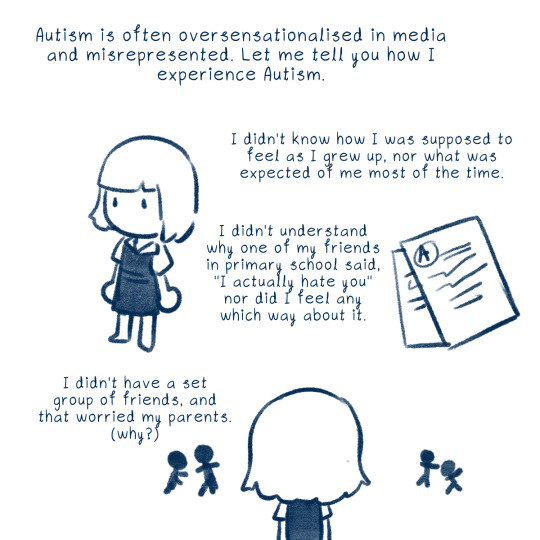
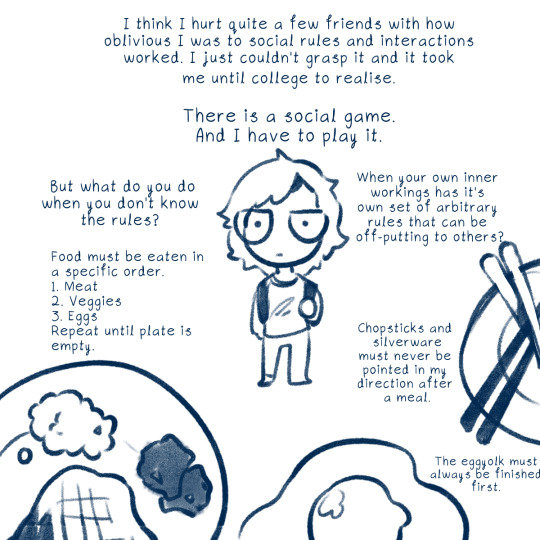

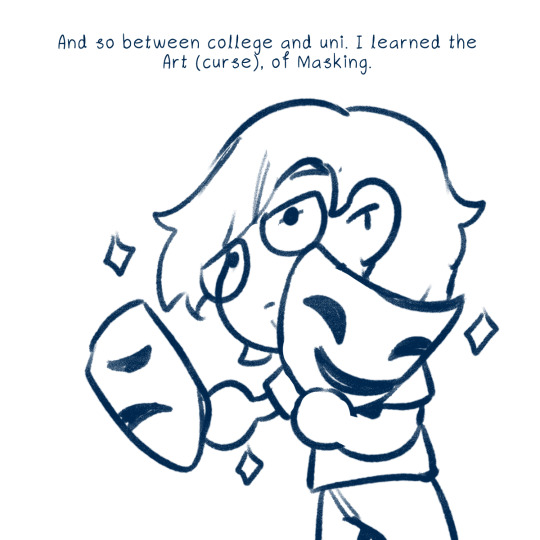
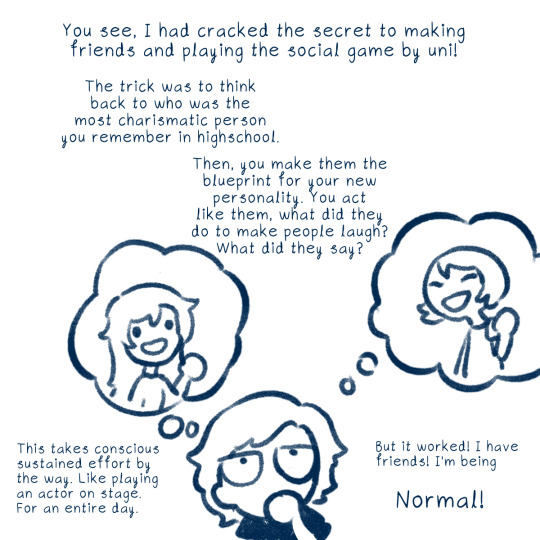

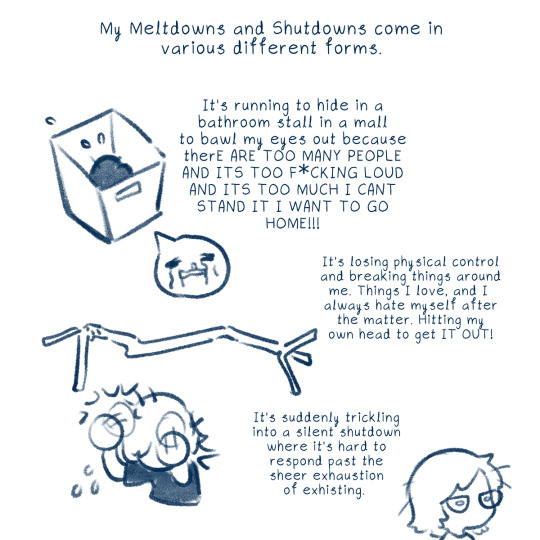
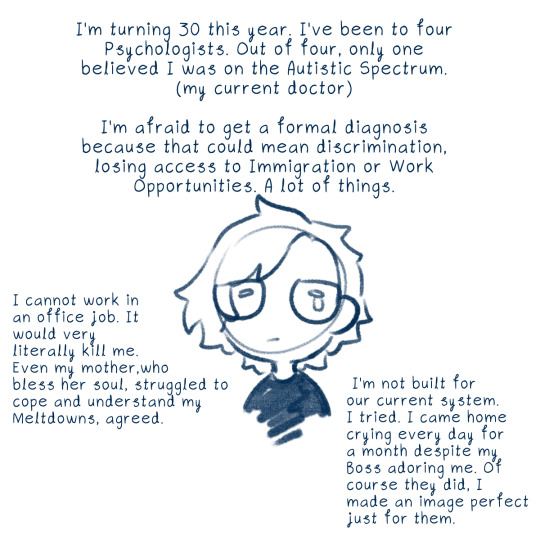
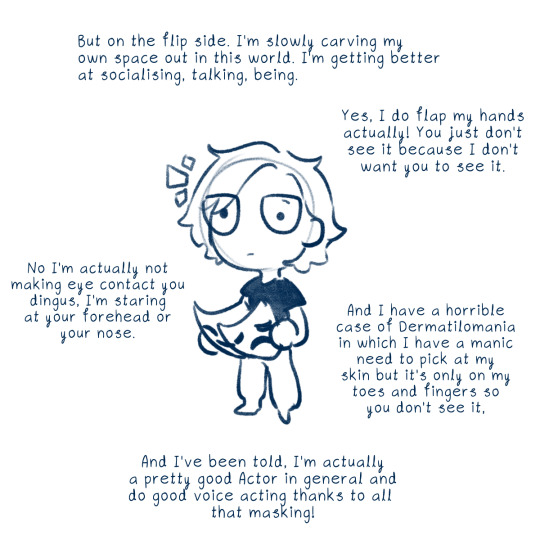
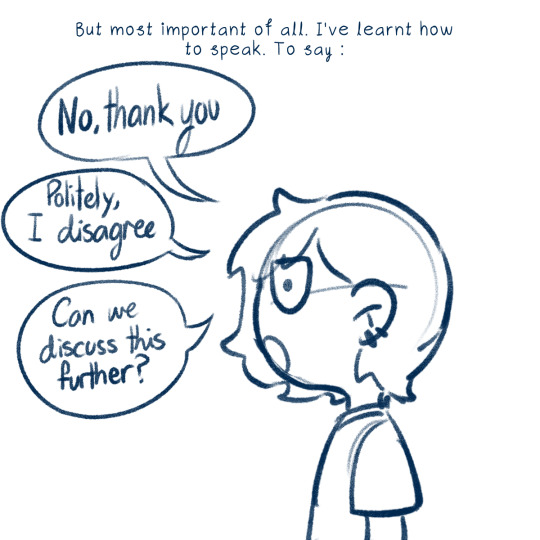


Happy Autism Awareness Month! I AM SO TIRED OF BEING AUTISTIC!`
#ASD#autism#actually autistic#autism awareness#autism awareness month#long comic#comic#neurodivergence#yon mental health comic
2K notes
·
View notes
Text
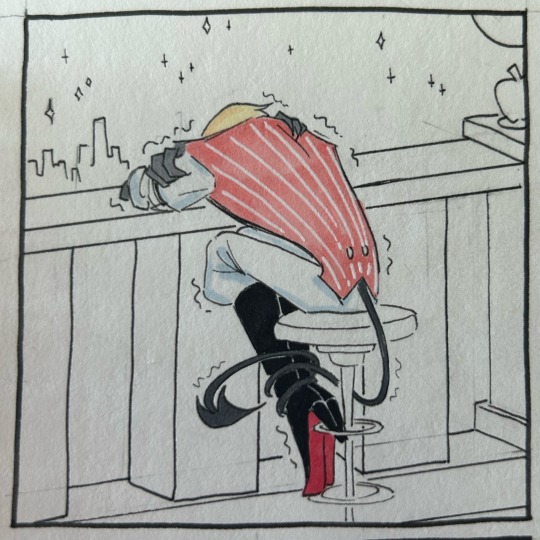
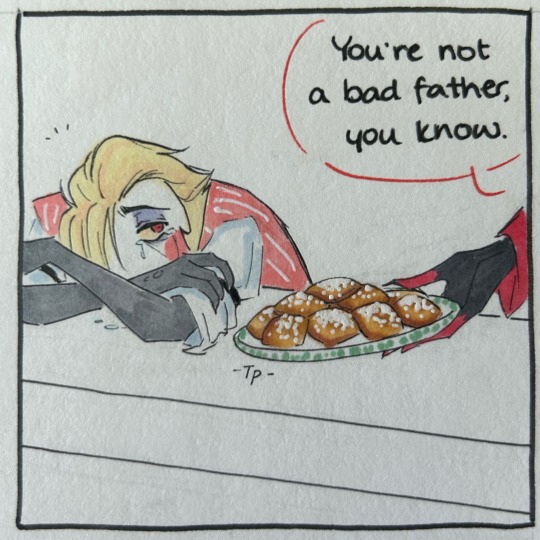
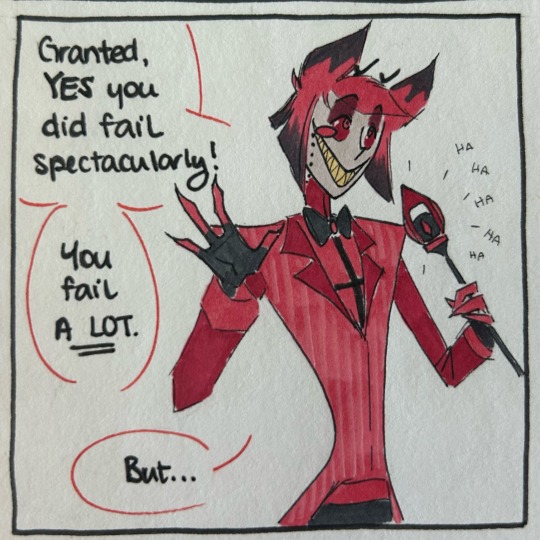
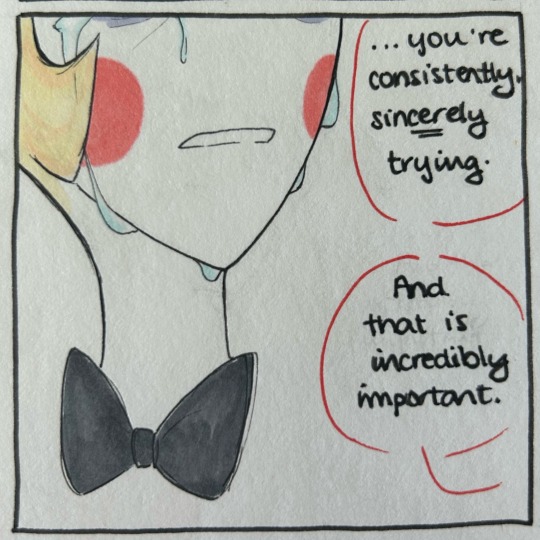
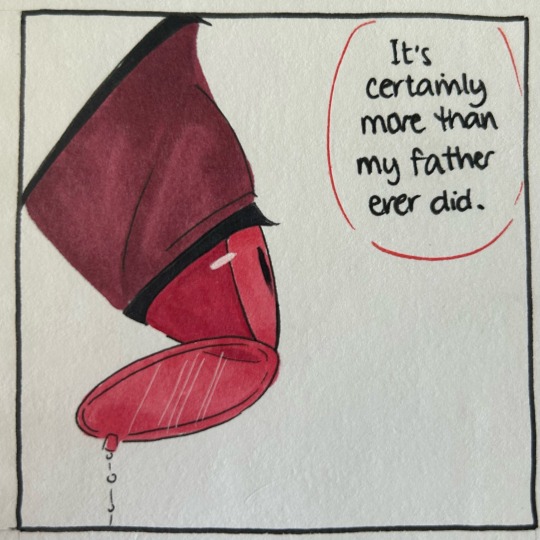
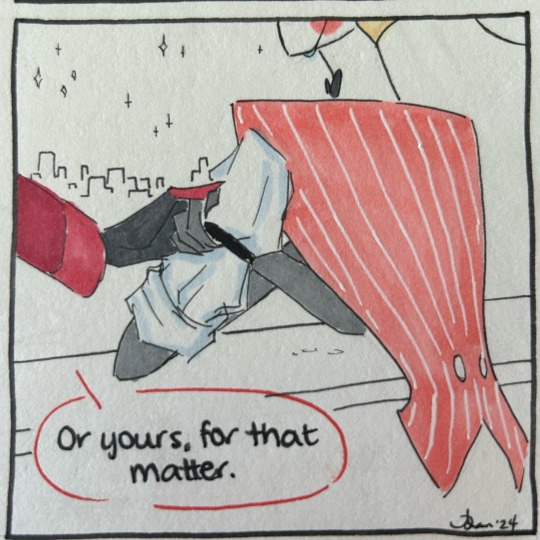
Episode 7: Beignets!
I rewatched S2E2 of Helluva Boss ("Seeing Stars") and got hit with that BANGER of a line from Loona about dads having issues and messing up all the time but still caring. VIVZIE, I am sensing a THEMEEEEEEE.
And thank you for all the lovely comments thus far! I'm so tickled to see how many folks connect with this, whether you're from the American South or not. Food is such a core love language for so many people.
SOUTHERN COMFORT FOOD MASTERLIST
#my art#traditional art#hazbin hotel#hazbin hotel fanart#hazbin hotel lucifer#hazbin hotel alastor#lucifer morningstar#lucifer x alastor#radioapple#appleradio#duckiedeer#morningradio#southern comfort food#beignets#ANGST#sad dad themes in the Hellaverse#hazbin hotel comic#comic fanart#I need more practice with backgrounds#vivziepop#hellaverse#depression SUCKS#Lucifer needs more friends#and also a therapist#mental health is IMPORTANT#may is mental health awareness month#don't wait until its Armageddon in your brain to get around to talking to someone#You need to learn the right skills for you BEFORE things hit the fan#and also finding the right therapist for you takes time#TW depression
1K notes
·
View notes
Text
Sorry, my prefrontal cortex is running on a dial up modem from 1996. It works very slowly, and if you interrupt it, it just screams and cancels the task it was working on in rage and horror.
832 notes
·
View notes
Text
i hate living with the constant push-and-pull of wanting love but yet pushing everyone away because i think everyone who tries to get close to me will abandon me.
#vent#bpd#bpd love#bpd fp#bpd intense#bpd vent#bpd issues#bpd awareness#actually bpd#borderline#borderline blog#bpd safe#cluster b#bpd shit#bpd split#bpd splitting#bpd abandonment#abandonment#abandonment issues#bpd stuff#bpd thoughts#borderline personality disorder#borderline pd#borderline splitting#actually borderline#living with borderline#vent post#bpd awareness month#mental illness#mental health
448 notes
·
View notes
Text

Hi there! My name is Bri Pastro and I’m a queer doctoral candidate in Clinical Psychology at Fordham University. I’m a part of a research team collaborating with University of Maine to investigate mental health in rural vs. urban teenagers!
Our study is regarding risk & resilience related to mental health in adolescents. We’re particularly interested in online and interpersonal interactions and how these factor into mental health. Participating includes completing a 25 minute online survey.
In order to participate in this study participants must: Be 15-18 years old, be comfortable reading and speaking English, and live in a rural community OR an urban community in the United States.
If you are interested in participating in the study, please click on the link below. Participants who complete the study will be entered into a raffle to win one of 20, $25 Amazon gift cards.
If you know someone who may be interested, please send them this link!
Thank you for helping me with my doctoral research! Participation is completely voluntary, and participants may end the study at any time. All data is confidential. This study was approved by the Fordham University and University of Maine Institutional Review Boards.
We hope that this research helps us better understand experiences for adolescents across the United States. Please reach out to us at [email protected] with any questions. We are closing recruitment at the end of the month and are putting one last push to get more participants! Please repost as you can :)
#mental health#research#rural#gay#lgbt#lesbian#lgbt+#lgbtqia#psychology#psych#mental health awareness month#mental illness#mental wellness#mental heath support#mental wellbeing#stress#therapy#burnout
210 notes
·
View notes
Text
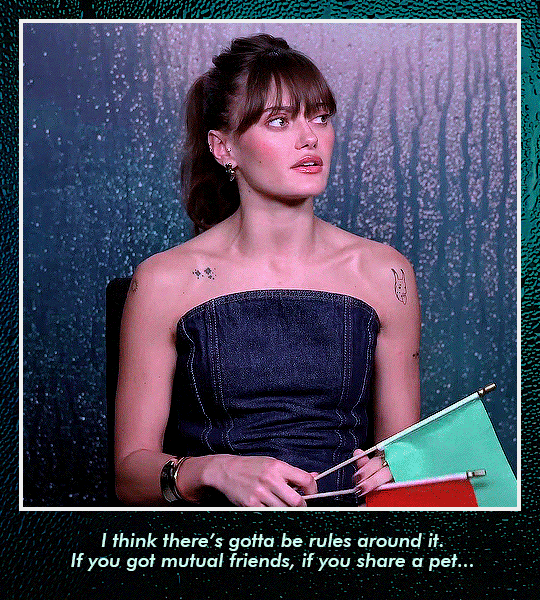


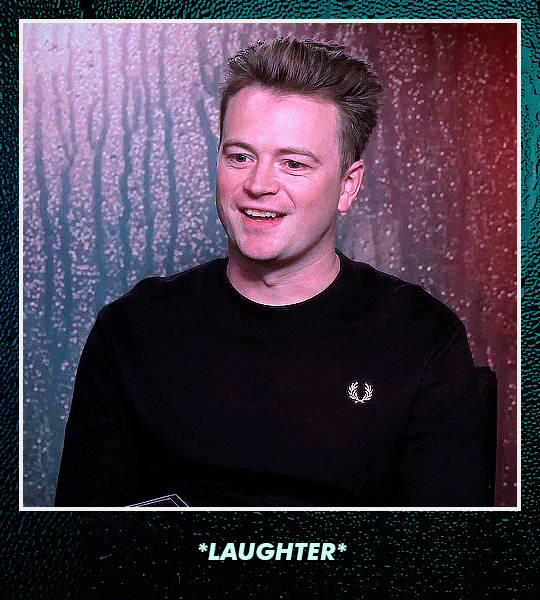


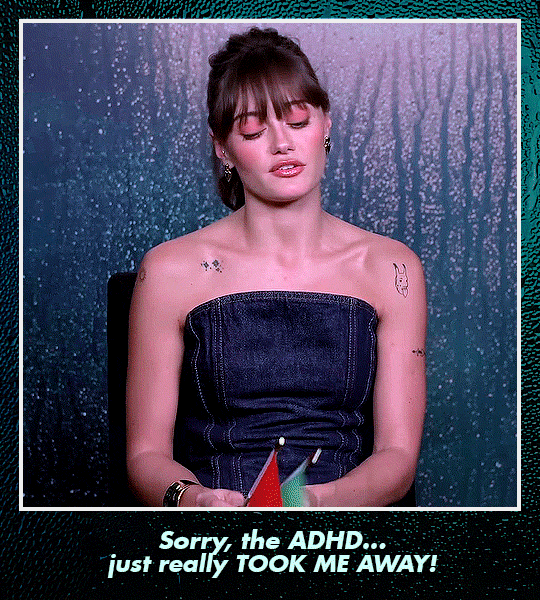
When your whimsical brain just takes control! ADHD & ELLA PURNELL Interview by IGV Presents
[+] ELLA PURNELL [GIF Collection] ✨ [+] ..more on “ADHD” 🧠🦋
#Does it always happen to you? 🧠#Ella Purnell#ADHD Awareness Month 2024#ADHD#Ella Purnell and ADHD#ADHD Awareness Month#October 2024#Attention Deficit Hyperactivity Disorder#Attention Deficit Disorder#ADD#Mental Health#Sweetpea#Fallout#Yellowjackets#Arcane#Sweetbitter#Interview#Quotes
206 notes
·
View notes
Text
Autistic Self Care
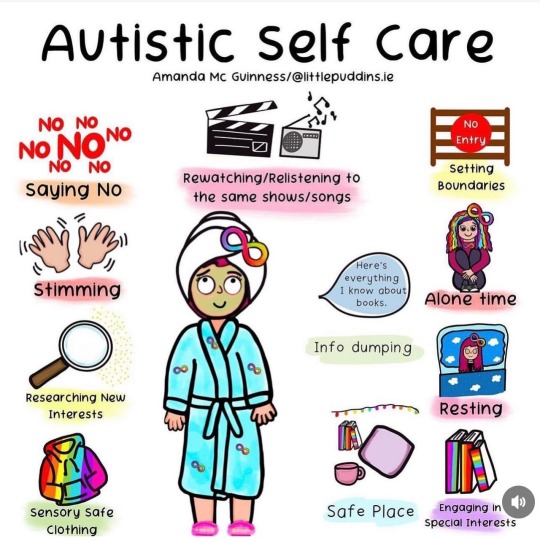
Saying no
Stimming
Researching new interests
Sensory safe clothing
Rewatching/relistening to the same song/movie
Setting boundaries
Alone time
Info dumping
Resting
Safe place
Engaging in special interests
Littlepuddins.ie
#autism#actually autistic#autism awareness month#autism acceptence month#self care#mental health#physical health#take care of yourself#there’s nothing wrong with saying “no”#set boundaries#rest when needed#neurodivergence#neurodiversity#actually neurodivergent#feel free to share/reblog#Littlepuddins.ie (facebook)
468 notes
·
View notes
Text
Nothing's hoter than a man who's emotionally available and isn't afraid to show his vulnerable side so don't be embarrassed to show your emotions.
#men's mental health#june is a men's mental health month#june 2024#dark academia#light academia#mine#spilled ink#spilled words#txt#dark acadamia aesthetic#quotes#spilled thoughts#love#relationship#reminders#words#literature#mental health#mental heath support#mental health awareness#life#litrature#tumblr#text#chaotic academia#romantic#romance#relationships#couples#couple
382 notes
·
View notes
Text
Instead of ‘man up,’ speak up.
Instead of ‘stay strong,’ stay honest.
Instead of 'toughen up,' soften your heart.
Instead of ‘men don't cry,' embrace your tears.
Instead of 'push through pain,' take time to heal.
Instead of 'men must be stoic,' show your feelings.
Instead of ‘always be the provider,' practice self-care.
Instead of 'emotions are for women,' own your emotions.
Instead of 'men don't need therapy,' prioritize your mental health.
310 notes
·
View notes
Text

Today’s character is Entrapta from Shera and the Princesses of Power!
As I am autistic myself, I also wanted to do something for Autism Awareness Month and Entrapta was my favourite autistic character to do that! 💕
She’s also a great choice because she relates to me a lot with my autism. Entrapta had trouble with friendships and social cues and sometimes no social filter at all, but she did care for them despite the different way she would show it. It can be hard to sometimes realize these things but doesn’t mean we can’t learn them.
Even if you don’t understand things that most people would, that is totally okay! We are all built and learn differently, everyone is completely unique and beautiful in their own special way. Let your differences in yourself become your super power! 💕✨
If there’s any autistic characters you’d like to see this month or in general, let me know!
#entrapta#autism#autistic#autism awareness#autism acceptence month#autism awareness month#cartoon art#fanart#she ra and the princesses of power#she ra#she ra fanart#she ra entrapta#positive words#mental health#cartoon#wholesome art#wholesome#Chibi art#spop#spop fanart
211 notes
·
View notes
Text
It's BPD (borderline personality disorder) & Mental Health Awareness Month! 🖤💚

I just wanted to share this and let people know 🫶💕💕
Old art of my sober journey!


I was able to reach 5 months (and 12 days) sober after so long! 😁😁💕 So I'm genuinely really proud of myself 💕
#lego monkie kid fanart#monkie kid fanart#bpd awareness#borderline personality disorder awareness#mental health awareness month#mental health awareness#bpd awareness month#borderline personality disorder awareness month
278 notes
·
View notes
Note
AM supporting pride month
Day 122






#am ihnmaims#i have no mouth and i must scream#ihnmaims#ihnmaims am#shittyamdaily#allied master computer#allied mastercomputer#men’s mental health#pride month#lgbt pride#queer pride#happy pride 🌈#mens mental health#cancer survivors month#alzheimers#alzheimers awareness month#cancer#gun violence#gun violence awareness month#immigrants#immigrant heritage month#psa#antiphospholipid antibody syndrome#antiphospholipid antibody syndrome awareness month#audiobooks#audiobook appreciation month#cancer immunotherapy awareness month#immunotherapy#ptsd#june
120 notes
·
View notes
Note
What is the difference between sociopath and psychopath?
OH! OH OH OH I LOVE THIS QUESTION. Also this is a massive explanation that really goes in-depth about neurology so I'll do a read more.
The main difference is that a psychopath is born with ASPD. A sociopath develops it during early (we're talking starting off as young as 2) childhood due to severe long-term (several years) abuse and neglect (generally from main caretakers).
There are also some nuances in how a socio's brain works in comparison to a psycho's. But the major difference that really determines all of the minor differences is that a psychopath doesn't necessarily have trauma related to their ASPD, and tends to have a lot less comorbid disorders. A sociopath ALWAYS has trauma that directly caused their ASPD and a fucking CVS receipt of comorbid disorders the large majority of the time.
There are also more sociopaths than there are psychopaths. The physiology of ASPD is that the brain's structure is different from an empathetic person. Specifically in the prefrontal cortex and the amygdala, because there's not enough activity in those areas for someone with ASPD. The prefrontal cortex is involved in decision-making, impulse control, and regulation of social behavior, and the amygdala is involved in emotion processing and fear response. Abnormalities in the amygdala contribute to a lack of empathy and increased aggression (aggression does NOT equal violence in this case, but rather an increased and pervasive level of negative emotion that makes you more likely to act out). Genetics have been proven to play a factor in how likely someone who was born empathetic would develop ASPD.
The difference here is that a psychopath is born with reduced blood flow to those areas. No trauma needed, that's just how they work.
On the contrary, a sociopath develops reduced blood flow to those areas because if you live in an environment that fosters the growth of anti-social traits and behaviors you are not exercising those parts of your brain. I'll go into a deep dive about the neurological aspects of how formative trauma turns into ASPD.
Chronic stress from abuse can impair the development of the prefrontal cortex; reduced activity or structural abnormalities in this area can lead to increased impulsivity and difficulty regulating emotions. The amygdala becomes hyperactive due to repeated exposure to threatening situations. This results in heightened aggression and reduced ability to empathize with others. Abuse can lead to a smaller hippocampus, impairing the ability to process emotions and increasing vulnerability to stress.
Chronic abuse elevates cortisol levels (the stress hormone), which can alter brain function and structure. Persistent high cortisol levels can damage the prefrontal cortex and hippocampus, exacerbating emotional and behavioral regulation issues. Serotonin and dopamine neurotransmitters regulate mood and behavior. Abuse can disrupt their levels, contributing to aggression, impulsivity, and difficulty experiencing pleasure or reward.
The autonomic nervous system (ANS) becomes hyperactive, leading to a state of constant alertness and readiness for perceived threats. This can cause chronic anxiety, irritability, and aggressive responses. Conversely, some individuals may develop a blunted stress response, showing reduced physiological reactions to stress. This can lead to a lack of fear or concern for consequences. (These two may combine so that safe things trigger stress and unsafe things do not).
Abusive environments can impair the development of secure attachments, leading to difficulties in forming trusting relationships. This can foster detachment, manipulative behavior, and a lack of empathy. Inconsistent or abusive parenting can disrupt normal emotional development, making it difficult for individuals to manage their emotions and impulses. This can result in volatile behavior and poor emotional control. Abusive environments often model and reinforce antisocial behaviors. Children learn to cope with stress through aggression or manipulation, which can become ingrained patterns of behavior. Abusive environments can impede moral development, leading to difficulties in understanding and adhering to societal norms and rules. This can result in a disregard for others' rights and a propensity for criminal behavior.
Trauma and abuse can also alter gene expression through epigenetic changes, affecting the brain's development and function. These changes can increase the risk of developing ASPD by influencing genes involved in stress response, emotional regulation, and social behavior.
A lot of people who went through severe childhood abuse may experience anti-social symptoms without having full-blown ASPD. When I was younger I did a genetic test that led to some very fascinating results that now that I'm older and understand my disorder I understand how my ASPD ties directly into my genetic depression, or rather my genetic depression is caused by my ASPD.
I don't process/produce Vitamin B6, B9 (Folate), and B12. These vitamins are crucial for brain function and the production of neurotransmitters. Deficiencies lead to mood disorders, cognitive impairments, and other neurological issues. B vitamins are involved in synthesizing neurotransmitters like serotonin, dopamine, and norepinephrine, which regulate mood and behavior. These are neurotransmitters that act as natural painkillers and mood enhancers. B vitamins play a role in the metabolic pathways that produce endorphins. An inability to properly absorb, process, or produce B vitamins can disrupt these pathways, leading to lower endorphin levels, which can contribute to symptoms of depression and affect overall mental well-being.
Because of how specific my issue is I had to take a specialized blend of B Vitamins. Unfortunately once I turned 18 my parents stopped buying them for me and I haven't had the funds to purchase my own at all since I was cut off (which has led to my mental health tanking). I strongly suggest anyone who deals with anti-social traits in a way that is disruptive to their daily life to look into these. You can't generally find them at a drug store, but they're on Amazon for 25-ish USD for a month's worth bottle. Which is really good because when my parents were buying them two years ago or so they were 40$ a bottle.
I have been on all sorts of mood stabilizing medications, psychosis medications, anti-depressants, anxiety medication, etc. None of them worked because we didn't know what exactly was wrong with me. All it did was make it so I couldn't feel the negative emotions properly, so I was constantly numb. What the vitamins did for me is that they let me process passive endorphin exchange and metabolism for the first time in my life, which meant that there wasn't a drastic barrier between me and positive emotions.
I strongly suggest this for anyone who is also just dealing with mood instabilities/disorders because it helped immensely. I'm bipolar two and I wasn't dealing with any major manic episodes while I was on them for about two years, so it helped drastically in that aspect too.
I know this got a little off the rails, but sociopathy is such a hard disorder to deal with, and it's so demonized by the media. Just telling someone you're a clinical sociopath is enough for them to kick you out of their life, even though it has no reflection on your character and is just an outcome of a horrible, hell-like childhood. So I think it's important for ASPD voices to speak up about the disorder when they can and try to dispel some of the awful stigmatization.
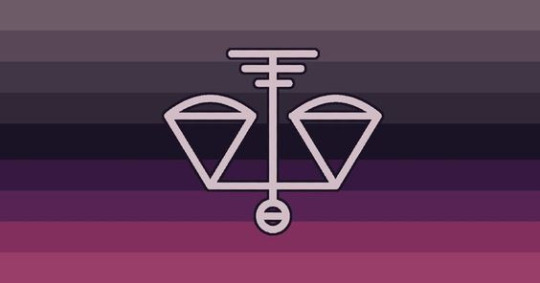
#alex answers#answered ask#thanks for the ask!#clinical sociopathy#clinical psychopathy#psychology#neurology#sociopathy/psychopathy#sociopath vs psychopath#actually aspd#aspd safe#aspd awareness#mental health#mental heath awareness#mental illness#mental disability#disability pride month#aspd flag#aspd pride#apsd voices#sociopath#psychopath#actually antisocial#antisocial personality disorder#personality disorder#cluster b safe#cluster b illness#cluster b disorder
135 notes
·
View notes